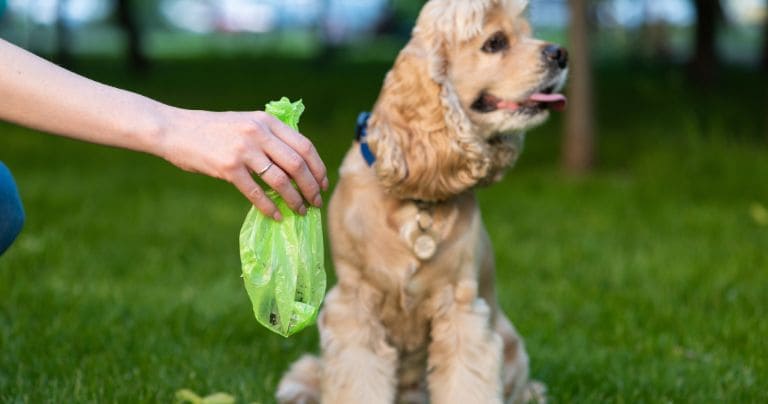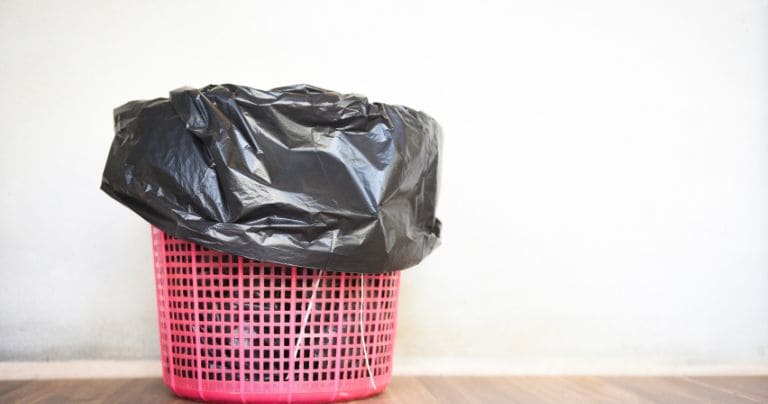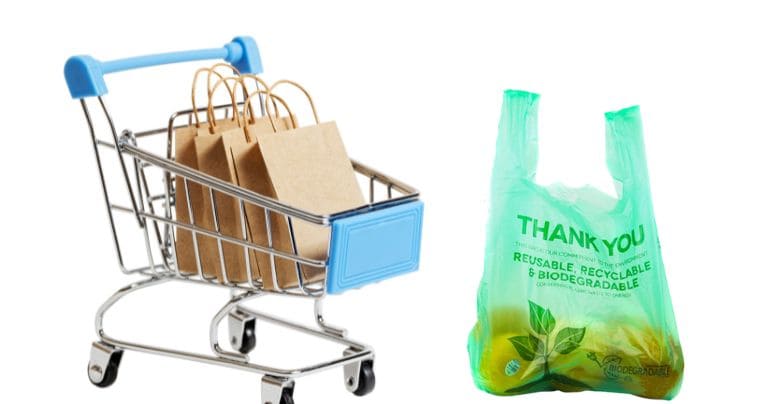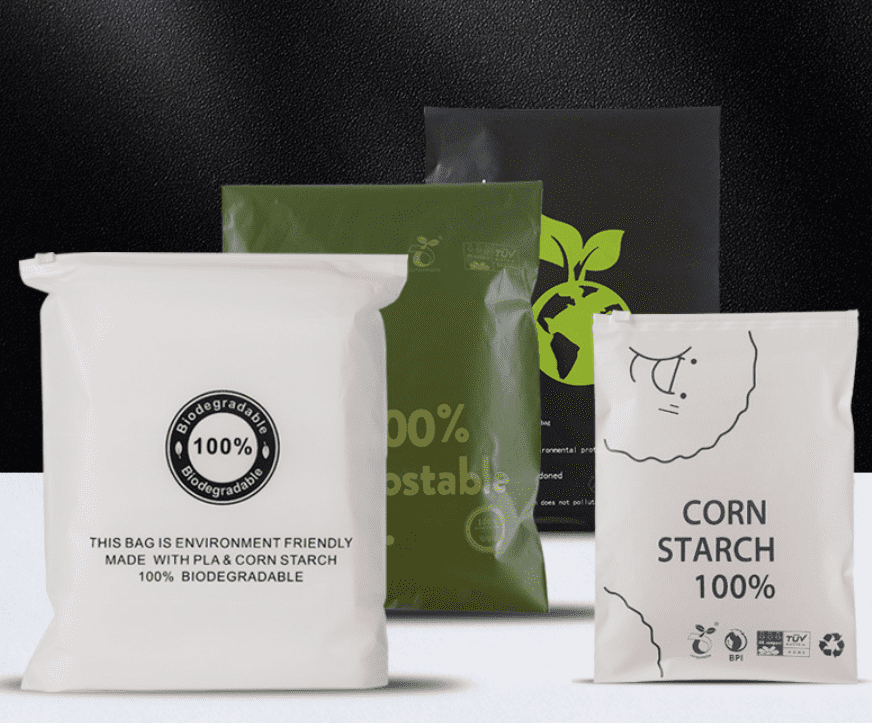Table of Contents
There are a lot of different types of compostable and biodegradable bags on the market these days. It can be hard to determine which ones are good for the environment and which ones are just greenwashing. If you don’t know how to choose which bags, In this blog post, we will discuss some simple tips for identifying compostable and biodegradable bags!
When it comes to choosing the right type of bag for your needs, it’s important to know the difference between compostable and biodegradable bags. Compostable bags are made from plant-based materials that will break down in a composting environment, but in biodegradable bags, only 20% are made from plant-based materials, the rest 80% material still comes from PE (plastic).
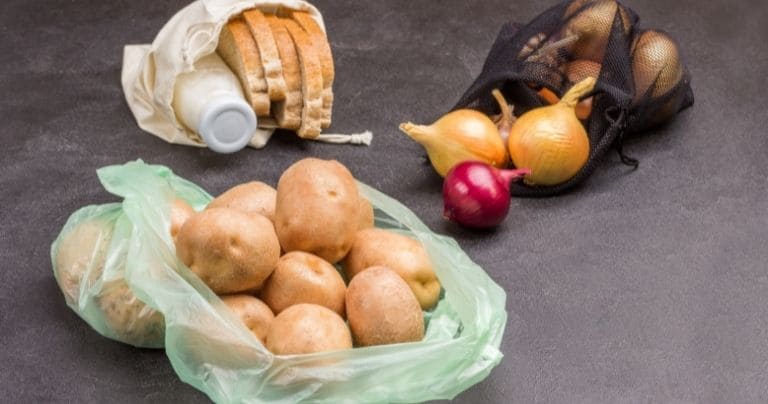
What are compostable bags and biodegradable bags made of?
Compostable bags are made from PBAT, PLA and corn starch, or other plant starch material, it’s 100% composting material. Usually buried in the soil for 180 days, the bag will completely decompose into water and carbon dioxide, and some nutrients that promote plant growth.
While biodegradable bags are made from a mix of plant-based and petroleum-based materials. Ingredient: 20% (PLA+ Corn starch), 80% rate is plastic.
In that case, compostable bags are 100% eco-friendly, and biodegradable bags are partially composted.
How do I know if a bag is compostable or biodegradable?
Certificate Checking:
The easiest way to tell if a bag is compostable or biodegradable is to look for a certification label from organizations like the Biodegradable Products Institute (BPI) or the European Composting Organization (ECO) or others. And these bags passed EN13432, ASTM 6400, and OK Compost.
These certificates indicate that the product has been tested and verified to meet certain standards for compostability.
The touch of the bag:
Compostable bags are softer and smell like grain, while biodegradable bags smell more or less like plastic and are harder. If burned by fire, compostable bags will burn completely into organic matter, and biodegradable bags will have plastic material and a pungent odor.
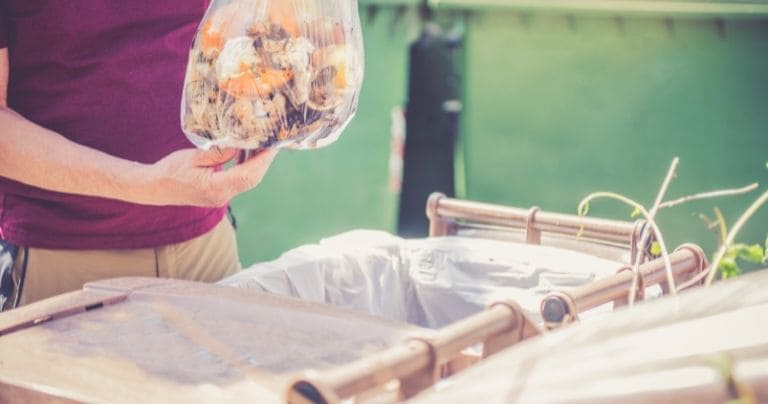
The benefits of using compostable bags
There are many benefits to using compostable bags. Here are just a few:
-They help reduce our reliance on fossil fuels, as they are made from renewable plant-based materials.
-They help reduce greenhouse gas emissions, as they decompose quickly and do not release harmful chemicals into the atmosphere.
-They help reduce waste in landfills, as they are easily broken down by microorganisms.
-They improve soil quality, as they release nutrients back into the earth as they decompose.
Price comparison between compostable and biodegradable bags
The price of compostable bags is generally higher than that of biodegradable bags. The reason is that the cost of raw materials for compostable bags is higher, and the production process is more complicated. In addition, at present, the market demand for compostable bags is not large enough, so the economies of scale have not been achieved, and the price is high. Such the same size and thickness of bags, compostable material costs will be around 80% more than biodegradable. After all, the PE (plastic) cost is very cheap.
However, with the increasing awareness of environmental protection, the market demand for compostable bags will gradually increase, and the price will gradually decrease. In addition, as more and more countries enact laws and regulations to ban plastic bags, the price of compostable bags will become more and more competitive.
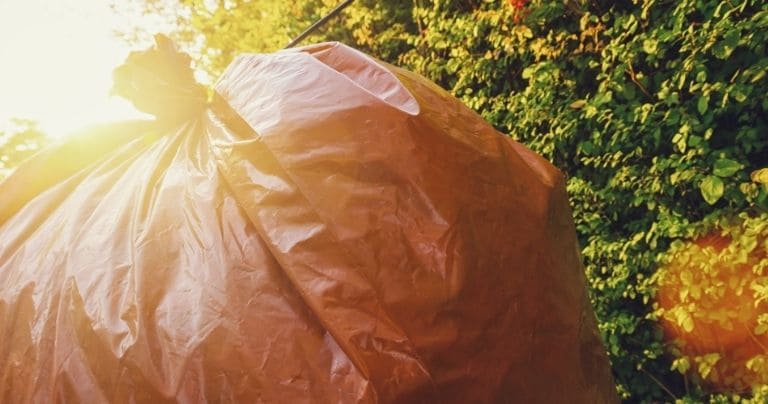
Where can I find a compostable or biodegradable bag supplier?
You can find compostable or biodegradable bags at many grocery stores, online retailers, and even some hardware stores. Anyway, if you need to purchase in bulk, consider the compostable or biodegradable supplier & manufacturer, such as monopacking, they can support 100% customization service.
We hope that these tips have helped identify compostable and biodegradable bags! Hopefully, this has been helpful and you can now make an informed decision about which type of bag is suitable for you.

